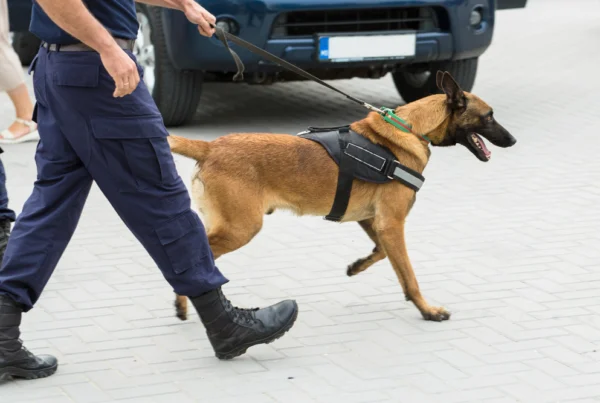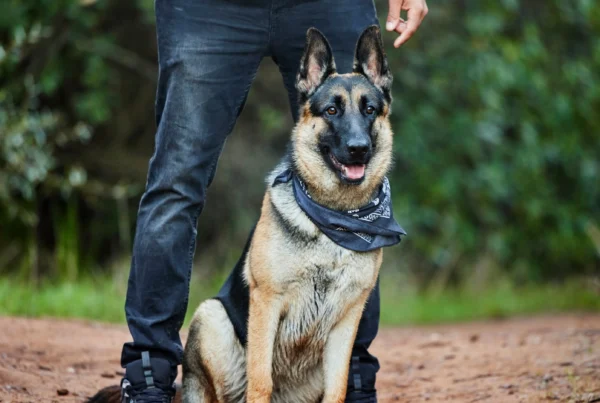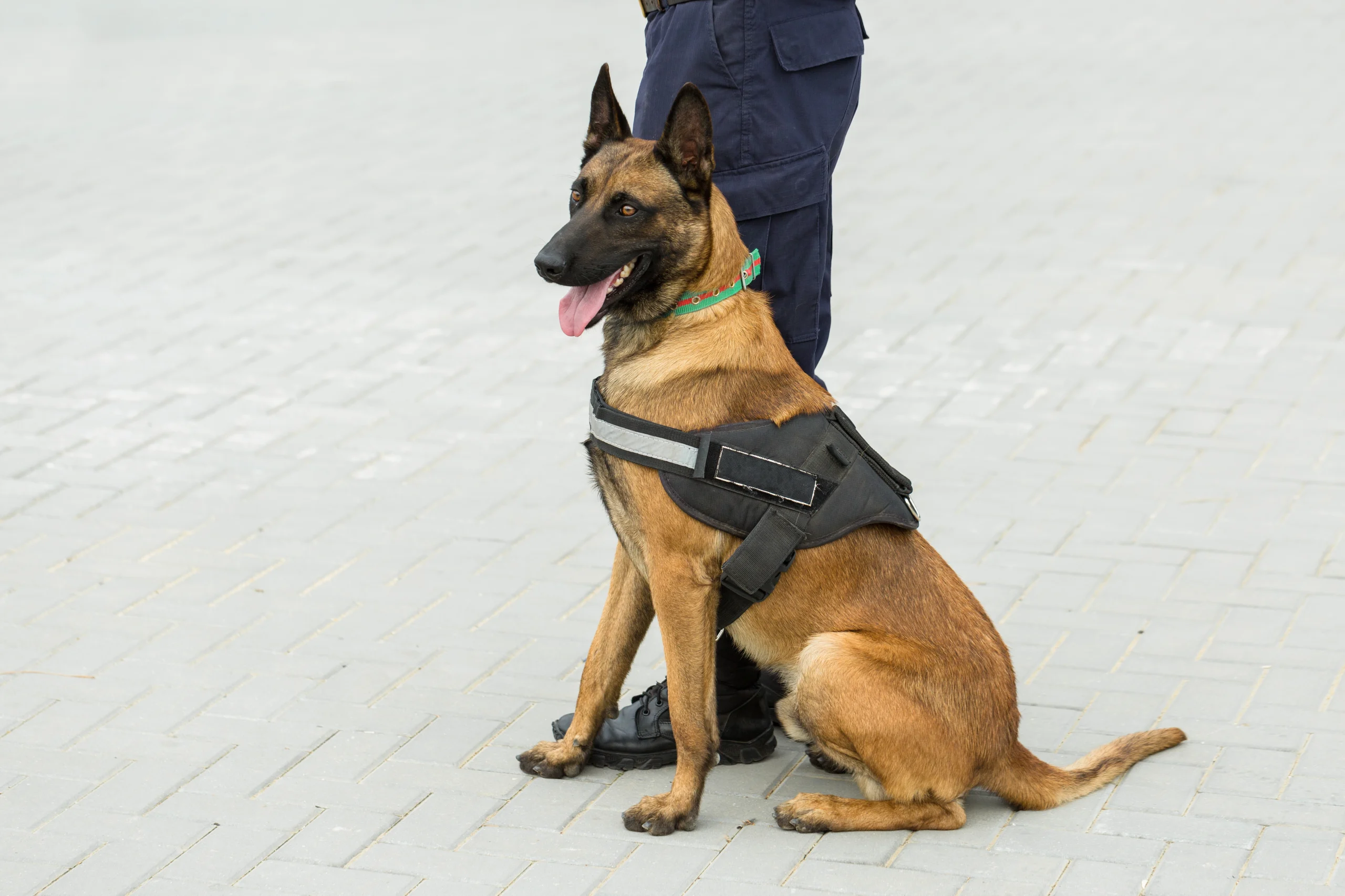Dogs are a wonderful species of animal, and in addition to being fantastically loyal companions, the fact that they can be trained to meet our security and protection needs adds to their uniqueness. It is critical to understand what qualifies them for this role, as well as how some breeds are more suited to security jobs than others. It is equally critical that a commercial firm owner understands their security requirements.
When talking about K9 security dogs, they assist with certain security tasks. These dogs are carefully trained to detect explosives, sniff narcotics, regulate crowds, and patrol perimeters (with their handler, of course). They are extremely effective because of their excellent sense of smell, acute instincts, and quick reactions.
Advantages of K9 Security dogs Service
What role may dogs play in your security strategy? Let us have a look.
- Deterrence: Having trained security dogs on-site helps deter potential criminals. Their presence alone conveys a powerful statement.
- Better Detection: Dogs’ strong sense of smell and instincts enable them to discover risks that humans and technology may overlook, such as hidden explosives, drugs, or persons.
- Versatility: K9 units offer versatility and can do multiple tasks. They may patrol huge areas, help with crowd management, and even respond to emergencies.
- High Accuracy: A trained K9 can detect explosives, contraband, and other hazards faster and more accurately than manual inspections or technology, reducing the need for costly equipment or additional workers.
- More Area Coverage: K9s provide efficient area coverage at major sites or events, reducing manual expenses.
- Incident Avoidance: K9 units can prevent break-ins, theft, and vandalism before they occur. A patrol dog at a warehouse, for example, can help to avoid property damage or the loss of important products.
Training Procedure for K9 Security Dogs
Security dogs go through considerable training, which begins at a young age. The early phases include socialisation, basic obedience training, and exposure to a variety of surroundings to assist the puppies in getting comfortable in new situations. As they develop, their training gets increasingly specialised, with each dog being trained to excel at the duties that will be performed on-site. The key training elements include:
- Obedience Training: Dogs must be able to follow their handler’s directions without hesitation. This training ensures that the dog is always under control, even in high-pressure situations, which is extremely important.
- Patrol and Protection Training: Dogs are trained to patrol certain locations, identify suspicious activities, and respond to potential threats. They learn to be attentive and highly responsive in order to defend their handler and the place.
- Scent Detection: Detection canines are thoroughly trained to identify certain scents, such as explosives, narcotics, or guns. This training is intended for dogs who will work in areas where these drugs pose a concern.
- Handler Bonding: a key aspect of the training process. This relationship provides effective communication, trust, and cooperation throughout operations.
- Agility Training: Security dogs are agile and swift. Their training includes learning how to handle challenging obstacles like solid walls, large jumps, and high fences.
Trained Sniffer Dogs for Drug Detection
One of the most popular reasons for deploying K9 security is in areas where there is a risk of drug usage. Security dogs are not there to be petted. They are well-trained, efficient, and focused. Dogs can detect drugs more accurately than any human contact or manual screening.
Professional dog handlers train these canines with toys and treats, making their work exciting, difficult, and enjoyable. In essence, a drug detection dog is trained to correlate the smell of the substance(s) being screened for with a toy or preferred treat. It establishes a direct relationship between drug sourcing and the fragrance of the dog’s favourite toy.
Detecting Drugs with Canine Patrols
Detection dogs are taught to alert their handler when narcotics are present. This indicator can be provided in a variety of ways, depending on the sort of training. Similarly, security dogs work in a number of ways, with the most appropriate solutions determined by their purpose and the location they are defending.
Passive patrols employ a dog on a lead that is always under the control of its handler. This form of patrol is non-intrusive and allows security agents to discover possible difficulties or detect drugs without making direct contact.
Proactive patrols usually involve taking the dog off the lead, albeit they are still under strict control. It enables more detailed searches, which is good in congested locations or when scanning vast properties. Dual-purpose patrols cover both sorts of protection and are capable of responding to emerging situations or hazards.
Choosing the Right K9 Security Dogs
One of the numerous advantages of having canine security is the variety of services offered. Some dog patrol squads specialise in specific sorts of protection, while others will have a broader scope.
Dogs are commonly utilised in patrol services, where their superior speed, hearing, agility, and sense of smell allow them to detect intruders much faster than any professional security guard. This form of patrol is frequently a deterrent in and of itself, as the majority of thieves would avoid sites or businesses with canine patrols, preferring to target more susceptible settings with inferior security.
How to Add a K9 Unit to Your Security Strategy?
Thinking about adding a K9 unit to your company’s security system? It’s a terrific move, but there are a few things to consider. Here’s how to get started:
1. Determine Your Security Needs:
Take a step back and assess your company’s security concerns. Are you managing big outside spaces, entry points, or threats such as theft or contraband? K9 units perform best when you know exactly where they will have the most impact, such as protecting entrances or patrolling large areas.
2. Choose a Reliable K9 Security Business:
Hiring from a licensed organisation saves time and provides you with immediate access to skilled personnel. Building your unit, on the other hand, gives you greater control, but it also requires a larger investment. In any case, be sure you’re working with trained professionals who know what they’re doing – you don’t want to risk the liabilities that come with bad dog behaviour.
3. Establish Operational Protocols:
Establish explicit procedures on how to operate the K9 unit. It’s wise to plan when and where they’ll be deployed, how they’ll handle emergencies, and how they’ll integrate with your other security measures. It ensures consistency and prevents confusion.
4. Care for the Dogs:
Remember that they are working animals, and their health and fitness are really important. Plan for ongoing expenses such as food, veterinarian care, and frequent training to maintain them in good form. A healthy dog not only performs better at work but also lives a longer life.
5. Build Your Own Unit:
If you want to start your own K9 team, the first step is to find suitable canines. Not just any dog will suffice. K9 security dogs should be sourced from licensed trainers or breeders who specialise in this field. German Shepherds, Belgian Malinois, and Labradors are popular breeds because of their intelligence, dependability, and ability to perform security tasks. However, a great dog requires a terrific handler.
The second stage is to invest in training programs so that your handlers understand how to interact with the dogs, interpret their behaviour, and keep them engaged. Certification is also a good idea. It’s beneficial to have folks on your team that are truly knowledgeable about their work.
You can also check our comprehensive manned guarding services to enhance the security of your premises.
Tips and Best Practices for Running a K9 Unit
It is critical to understand the steps involved in efficiently managing a dog and handler pair. Here are some practical ideas to help:
Collaborate with local law enforcement: Working with law enforcement to train your K9 unit can significantly improve its performance. Experienced K9 cops can provide valuable advice that cannot be obtained elsewhere.
Monitor performance on a regular basis: Take the time to observe how the unit is going. Are the dogs reacting well? Are they being used in the correct situations? Make necessary tweaks to ensure that your K9 squad is as efficient as possible.
Maintain compliance with rules: Make sure you are familiar with the local and federal rules governing the use of K-9s in security. It is preferable to deal with legal issues now rather than later.
Form strong handler-dog relationships: Everything revolves around the handler-dog relationship. Please make sure they spend time together, train consistently, and develop trust.
Conclusion
K9 security dogs provide an effective alternative for security and detection. Trained canines, with their amazing sensory capacities, provide ideal protection in a variety of situations, including drug detection and strategic location security. Using these services not only improves security effectiveness but also provides peace of mind to the larger community.
Do you want them for your home or business? Just have a look at our K9 Security Services for unmatched protection.











